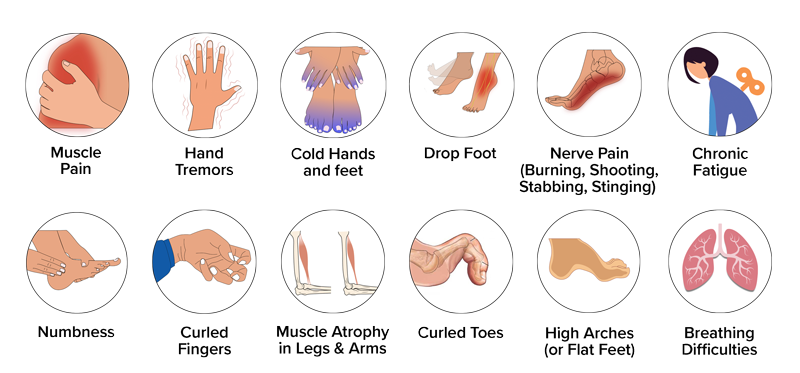Charcot Marie Tooth Disease (CMT) is a complex neurological disorder that affects the peripheral nerves, leading to muscle weakness and sensory loss. In this comprehensive blog post, we'll delve into the underlying causes of CMT, shedding light on the genetic, environmental, and biological factors contributing to this condition.

Understanding Charcot Marie Tooth Diseas
CMT is primarily a genetic disorder, with mutations in various genes responsible for its development. These genetic alterations affect the structure and function of peripheral nerves, leading to progressive damage over time. While most cases of CMT are inherited in an autosomal dominant pattern, other forms may follow autosomal recessive or X-linked inheritance patterns.
Genetic Factors
Mutations in genes such as PMP22, MPZ, and GJB1 are commonly associated with CMT. These genes play crucial roles in the formation and maintenance of myelin, the protective covering of nerve fibers. Disruption of myelin integrity impairs nerve signaling and leads to the characteristic symptoms of CMT, including muscle weakness, foot deformities, and sensory disturbances.
Environmental Influences
While genetics play a significant role in CMT, environmental factors may also contribute to its onset and progression. Environmental toxins, viral infections, and trauma are among the potential triggers that can exacerbate nerve damage and worsen symptoms in individuals with genetic predispositions to CMT.
Biological Mechanisms
In addition to genetic and environmental factors, several biological mechanisms underlie the pathogenesis of CMT. Abnormalities in nerve cell metabolism, mitochondrial dysfunction, and impaired axonal transport have been implicated in the disease process. These underlying mechanisms highlight the multifactorial nature of CMT and the intricate interplay between genetic, environmental, and biological factors.
Conclusion
Charcot Marie Tooth Disease is a complex disorder influenced by a combination of genetic, environmental, and biological factors. By understanding the underlying causes of CMT, researchers and healthcare professionals can develop targeted therapies and interventions to manage the condition effectively. Continued research into the intricate mechanisms of CMT holds promise for improved treatments and better outcomes for individuals affected by this debilitating neurological disorder.